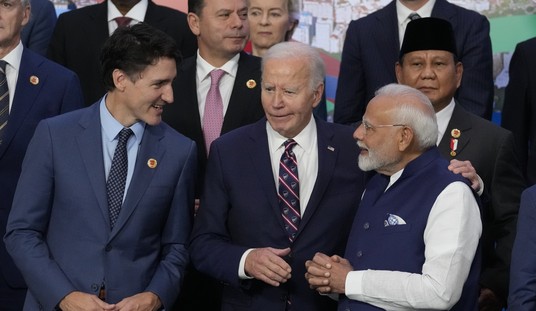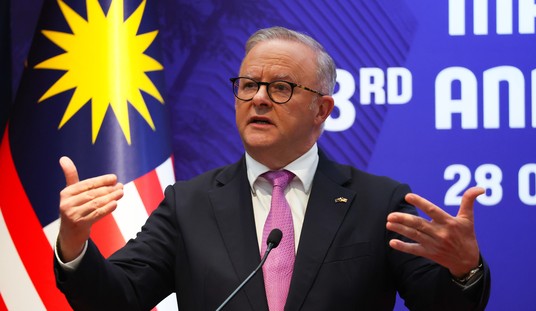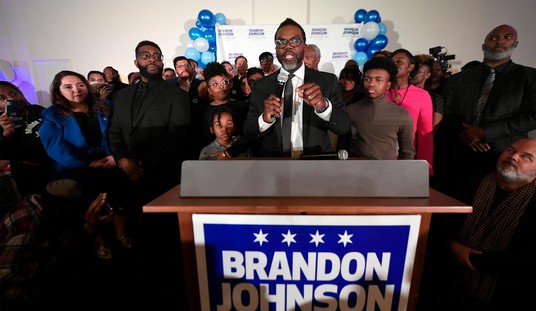Barack Obama has certainly succeeded in building a large community of small donors in the 2008 cycle. However, his excuse for abandoning his pledge to seek public financing for his general-election campaign falls somewhat short of the full reality of his success. Obama claims that he has met the moral obligation of his pledge by funding himself with grassroots efforts, but the Washington Post reports that Obama has his share of big-ticket bundlers as well, and they’re not silent partners:
Sen. Barack Obama credits his presidential campaign with creating a “parallel public financing system” built on a wave of modest donations from homemakers and high school teachers. Small givers, he said at a fundraiser this week, “will have as much access and influence over the course and direction of our campaign that has traditionally been reserved for the wealthy and the powerful.”
But those with wealth and power also have played a critical role in creating Obama’s record-breaking fundraising machine, and their generosity has earned them a prominent voice in shaping his campaign. Seventy-nine “bundlers,” five of them billionaires, have tapped their personal networks to raise at least $200,000 each. They have helped the campaign recruit more than 27,000 donors to write checks for $2,300, the maximum allowed. Donors who have given more than $200 account for about half of Obama’s total haul, which stands at nearly $240 million.
Obama’s success in assembling bundlers offers another perspective on a campaign that promotes itself as a grass-roots effort. While the senator from Illinois has had unprecedented success generating small donations, many made online, the work of bundlers first signaled the seriousness of his candidacy a year ago and will be crucial as he heads into the final Democratic primaries with a lead against Sen. Hillary Rodham Clinton (N.Y.).
The bundler list also sheds light on those who might seek to influence an Obama White House. It includes traditional Democratic givers — Hollywood, trial lawyers and Wall Street — and newcomers such as young hedge fund executives, Silicon Valley entrepreneurs, Chicago-based developers and members of the black business elite. One-third had never contributed to a presidential campaign, much less raised money.
The list includes partners from 18 top law firms, 21 Wall Street executives and power brokers from Fortune 500 companies. California is the top source, with 19 bundlers. Both Illinois and Washington, D.C., have six, and five hail from New York.
The bundlers don’t just sit silently on the sidelines, either. Obama holds weekly conference calls to discuss campaign strategy and policy with them. They got a preview of the speech that Obama gave to do damage control over the Wright Stuff, and they pushed him to link the US economy and its problems with the Iraq war. Anthony Lake meets with them so often that the Obama campaign credits him with a portion of the funds raised by the calls with his national-security adviser.
That picture differs substantially from the image offered by Obama of a campaign directed by grassroots activists. Their money clearly doesn’t do the talking. Bundlers direct the campaign, quite literally, and those bundlers represent moneyed interests — a much different reality than what Obama and his advocates admit.
As someone who opposes most campaign-finance reform efforts as misguided and harmful to free speech, I don’t find anything particularly objectionable to this structure. It fits within the legal parameters of campaigning, and it mirrors every other major campaign in American national elections. However, Barack Obama has argued for campaign finance reform and for public funding of presidential elections. His rejection of that money doesn’t come from any high-minded sense of civic duty; it’s a threadbare rationalization for succumbing to what he himself campaigns against — the Beltway mentality.
In short, Obama’s principles are up for sale. He may make a better pitch than most, but in the end he’s just a higher-price sellout than most others. That’s not hope or change, but simply hypocrisy on a bigger scale.








Join the conversation as a VIP Member